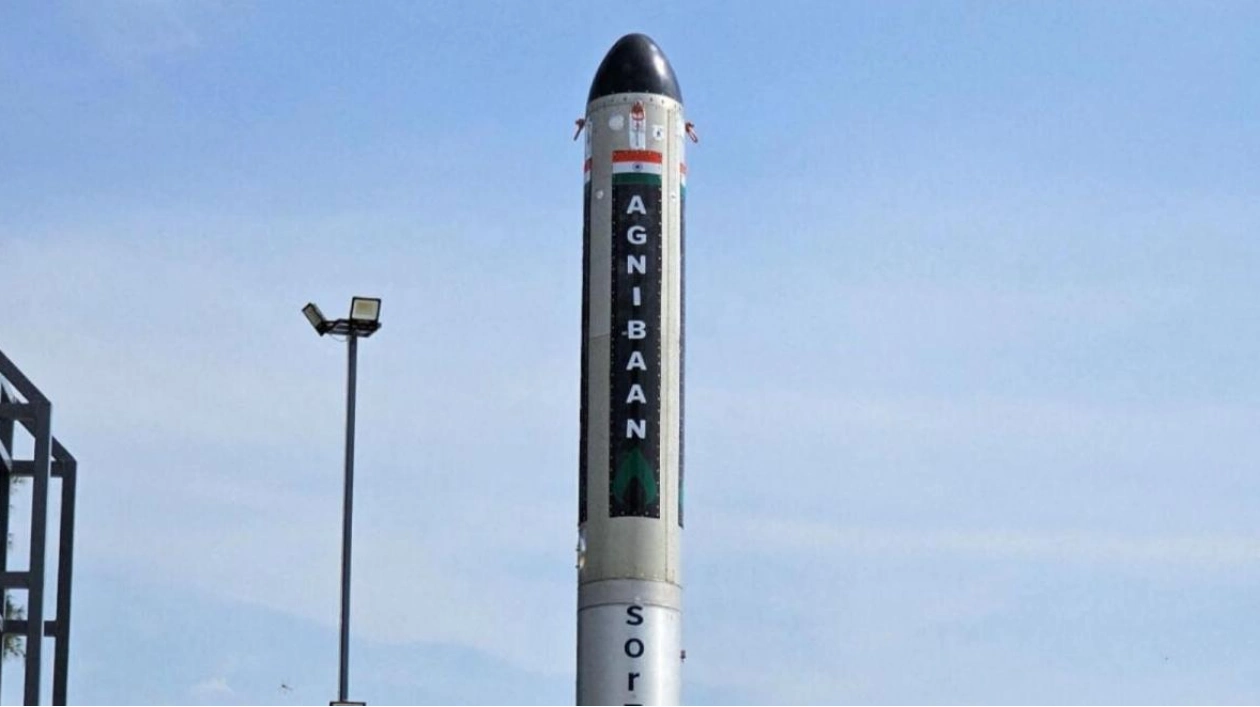India's Agnikul Cosmos had to cancel the test flight of its inaugural rocket just seconds before its scheduled launch on Tuesday, marking the fourth cancellation in the past three months. The launch of India's second privately built rocket - the first to utilize a combination of gas and liquid fuel - had been postponed thrice due to technical issues, including one instance where the flight was called off approximately 90 seconds before liftoff.
The launch, initially set for 5:45 am (4:15 am UAE time) on Tuesday, faced a delay of less than six minutes before liftoff due to a technical glitch in the countdown activities. Subsequently, officials established a new liftoff time of 9:25 am (7:55 am UAE time). However, just five seconds before liftoff, the launch was temporarily halted to check igniter performance and was consequently called off.
The primary objective of the mission was to conduct a two-minute test of the new 'semi-cryogenic' engine and 3D-printed parts. A successful test would have signified a technological advancement for India, as its Indian Space Research Organisation (ISRO) has not achieved a successful flight using a semi-cryogenic engine, which employs a blend of liquid and gas for propellant.
Agnikul Cosmos' Agnibaan rocket is a customizable, 2-stage launch vehicle with the capacity to transport up to 300kg (about 660lb) of payload to orbits approximately 700km in altitude (435 miles). In comparison, SpaceX's Falcon Heavy can carry up to 63,500kg to low Earth orbit. India's first privately developed rocket, fabricated by the company Skyroot, was launched from ISRO's launch site in 2022.
Established in 2017, Agnikul - named after the Hindi and Sanskrit word for fire - operates the nation's initial private launchpad and mission control centre, while ISRO oversees all other launchpads.






